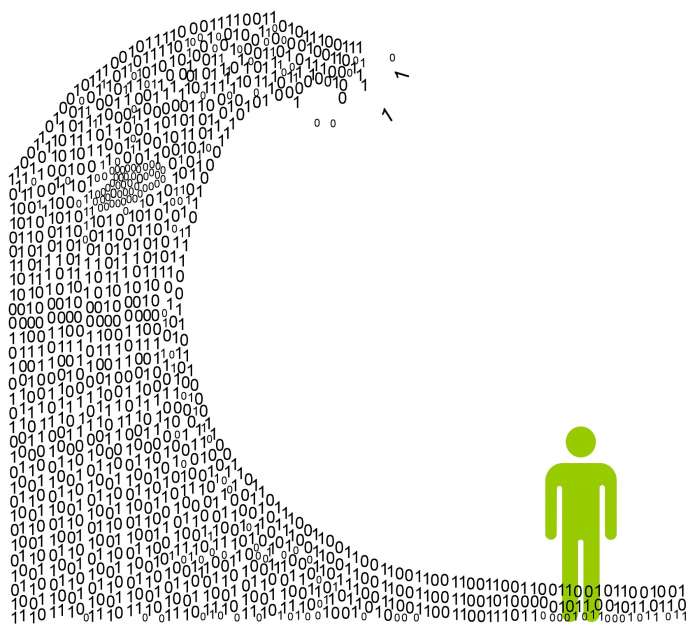Časoris is an online newspaper aimed at children. Each week we’ll take an article and post it here as a Slovene-English dual text.
Preden oblikuješ mnenje, se pozanimaj pri različnih virih
Before forming an opinion, ask various sources
Written by Sandra Hanžič, translated by JL Flanner & G Translate
Kako krmariti v izobilju različnih med sabo nasprotujočih si podatkov?
How to navigate the abundance of different, conflicting data?
Nekaj nasvetov ponuja izr. prof. dr. Gregor Torkar s Pedagoške fakultete Univerze v Ljubljani.
Some advice is offered by Assoc. Prof. Dr. Gregor Torkar from the Faculty of Education, University of Ljubljana.
Dvomljivci v obstoj novega koronavirusa in v učinkovitost cepiv pravijo, da kritično razmišljajo. Ali lahko kritično razmišljamo tudi o tem, kdaj sonce zaide in kakšno je vrelišče vode?
Doubters about the existence of the new coronavirus and the effectiveness of the vaccines say they are thinking critically. Can we also think critically about when the sun sets and what the boiling point of water is?
Tukaj gre za težavo zaupanja drug drugemu. Kadar peljem avto na servis, verjamem, da je serviser naredil tisto, kar je obljubil. Sam se ne spoznam na to.
This is a problem of trusting each other. When I take a car to the service station, I believe the service technician did what he promised. I don't know that myself.
Zato imamo razdeljene družbene vloge. In tudi znanstveniki imajo neko vlogo.
That is why we have divided social roles. And scientists have a role to play, too.
Ni nujno, da vsi delajo v dobro družbe. Sem pa prepričan, tako kot pri vseh poklicih, da večina dela v dobro družbe in napredka.
It is not necessary that everyone works for the good of society. However, I am convinced, as with all professions, that most work for the good of society and progress.
Če v to ne verjamemo več, bomo kot družba težko preživeli. Pandemija ni naš največji izziv. Tisti najtežji bodo prišli v obliki podnebnih sprememb, kjer se bo treba odločati na enak način. Brez zaupanja v podatke bomo težko sprejemali odločitve.
If we no longer believe in this, we as a society will have a hard time surviving. A pandemic is not our biggest challenge. The most difficult one will come in the form of climate change, where decisions will have to be made in the same way. Without trust in data, we will find it difficult to make decisions.
Kako so s tem povezani proticepilci?
How are vaccines related to this?
Ne bi jih rad obsojal. V tej kopici podatkov, in kadar nisi strokovnjak na nekem področju, mora vsakdo, tako kot znanstveniki, dvomiti.
I would not like to condemn them. In this pile of data, and when you’re not an expert in a field, everyone, like scientists, has to doubt.
Vprašanje je samo, koliko boš v to odločitev vložil. Preden jo sprejmeš, moraš preveriti dejstva in jih razumeti. Če jih ne, se moraš pozanimati pri tistih, ki jim zaupaš in so usposobljeni, da to govorijo.
The only question is how much you will invest in this decision. Before you accept it, you need to check the facts and understand them. If not, you need to inquire from those you trust and are trained to say so.
Bolj si moramo zaupati. Ta negotovost je posledica splošnega družbenega nezaupanja in sebičnosti.
We need to trust each other more. This uncertainty is the result of general social distrust and selfishness.
Kaj svetujete mladim?
What do you advise young people?
Ko oblikujete svoje mnenje, se pozanimajte pri različnih virih. Ne vedno zaupati prvemu in ne samo enemu viru. Poslušajte drugačna mnenja in si potem ustvarite sliko.
When forming your opinion, inquire from various sources. Don’t always trust the first and not just one source. Listen to different opinions and then create an image for yourself.
Ko bomo začeli to dvoje spoštovati, se bomo lažje vživeli v situacijo nekoga drugega, sprejemali pomisleke in ne bomo tako agresivni drug do drugega.
When we start to respect these two, we will find it easier to empathize with someone else’s situation, accept concerns, and not be so aggressive toward each other.
Žal marsikdo ostaja zgolj pred svojim računalnikom. Takšno sodelovalno skupinsko komunikacijo bi zato morala spodbujati šola.
Unfortunately, many people are left alone in front of their computer. Such collaborative group communication should therefore be encouraged by the school.
Read more stories and improve your Slovene at Časoris, while all our dual texts can be found here.







